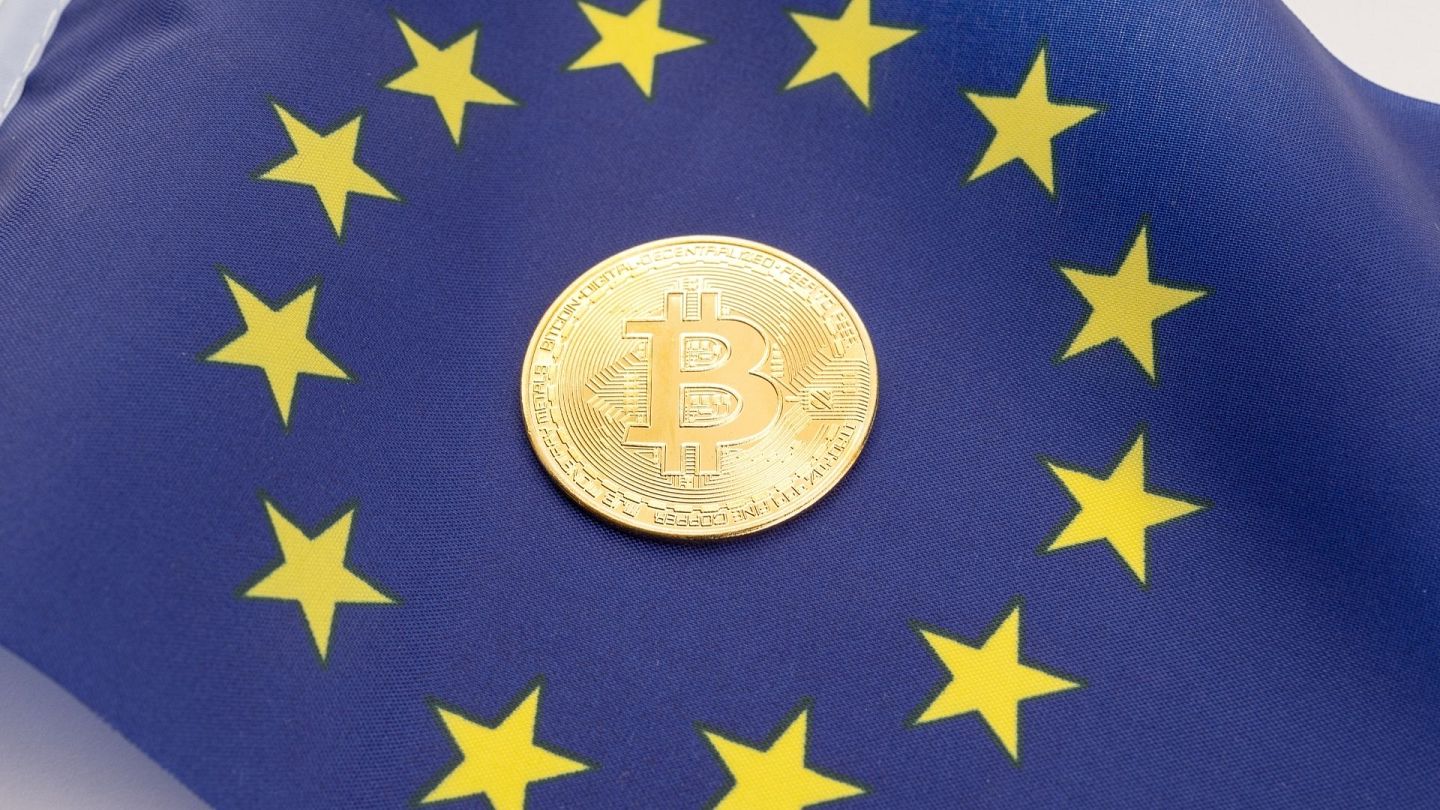
In recent years, the European Union (EU) has positioned itself as a global leader in sustainability initiatives, particularly with the European Green Deal, which aims to make the EU climate-neutral by 2050. At the same time, Bitcoin and other cryptocurrencies have gained increasing popularity across Europe, both as investment assets and as technological innovations in finance. However, the energy-intensive nature of Bitcoin mining has raised concerns about its compatibility with the EU’s ambitious environmental goals.
In this blog post, we’ll explore the current landscape of Bitcoin mining in the EU, discuss the sustainability challenges it poses, and consider potential solutions for balancing Bitcoin’s growth with Europe’s green goals.
Understanding Bitcoin Mining: Why It’s Energy-Intensive

Bitcoin mining is the process by which new bitcoins are created and transactions are verified on the blockchain. This process requires solving complex cryptographic puzzles, which in turn demands significant computational power. The more mining operations that participate, the more energy is consumed.
Bitcoin’s Proof-of-Work (PoW) consensus mechanism, the underlying technology that secures the network, has often been criticized for its high energy consumption. This energy demand has led to an environmental debate, particularly in regions like the EU, where reducing carbon emissions is a top priority.
The Environmental Impact of Bitcoin Mining in the EU

The environmental concerns surrounding Bitcoin mining are closely tied to the source of the energy used. Mining operations that rely on fossil fuels, such as coal or natural gas, contribute to increased carbon emissions, exacerbating climate change. According to estimates, Bitcoin mining consumes about 110 terawatt-hours of electricity annually, which is comparable to the energy usage of small countries like Sweden or Norway.
While much of the global Bitcoin mining activity has been concentrated in countries with cheap electricity, such as China (until recently) and Kazakhstan, the EU has seen a growing number of mining operations. Countries like Germany, Ireland, and Scandinavia have become hubs for Bitcoin mining due to their access to renewable energy sources, but concerns persist about the overall environmental footprint of these activities.
Balancing Growth and Sustainability: The EU’s Approach

As the EU continues to prioritize sustainability, the cryptocurrency sector, including Bitcoin mining, has come under scrutiny. Here are some ways the EU can manage the environmental impact of Bitcoin mining while fostering innovation:
- Promoting Renewable Energy-Powered Mining
One of the most effective ways to mitigate the environmental impact of Bitcoin mining is to power it with renewable energy sources like wind, solar, and hydropower. Many mining operations in the EU, particularly in countries like Iceland and Sweden, already rely on renewable energy. Encouraging this trend through incentives and regulatory support can reduce the carbon footprint of Bitcoin mining. - Encouraging Energy Efficiency Innovations
The Bitcoin community is actively exploring ways to improve the energy efficiency of mining, including advancements in hardware and alternative consensus mechanisms. While Bitcoin itself remains committed to PoW, innovations in mining hardware, such as more efficient ASICs (application-specific integrated circuits), can lower the energy required to mine each block. Additionally, initiatives such as layer 2 solutions (e.g., Lightning Network) could help reduce overall network strain. - Carbon Offsetting Initiatives
Some European mining operations have begun to explore carbon offsetting as a way to balance their environmental impact. By investing in projects that remove carbon dioxide from the atmosphere, miners can offset their emissions, contributing to the EU’s net-zero goals. While not a perfect solution, carbon offsetting can play a role in mitigating the negative effects of energy-intensive mining. - Stricter Environmental Regulations
The EU could take a regulatory approach by implementing stricter environmental guidelines for Bitcoin mining. This could include setting minimum standards for energy efficiency or requiring mining operations to source a certain percentage of their energy from renewable sources. This would ensure that Bitcoin mining activities align with broader EU climate goals, though it could also drive up operational costs. - Exploring Alternative Consensus Mechanisms
While Bitcoin’s Proof-of-Work is central to its security, alternative blockchain technologies like Proof-of-Stake (PoS) offer a much more energy-efficient solution. Ethereum, for example, has shifted to PoS, drastically reducing its energy consumption. Though Bitcoin’s transition to PoS is unlikely, exploring hybrid solutions or promoting alternative crypto projects in the EU that use less energy could diversify the digital ecosystem.
The Role of Bitcoin Mining in a Sustainable EU Economy

Despite the energy concerns, Bitcoin can still play a valuable role in the EU’s digital economy. It provides opportunities for financial inclusion, innovation in payment systems, and decentralized technologies that align with the EU’s push towards a digital economy. Moreover, Bitcoin’s open-source, decentralized nature offers a hedge against inflation and financial instability, which can benefit European businesses and investors.
To ensure that Bitcoin mining contributes to economic growth without undermining environmental goals, collaboration between the public and private sectors will be essential. By fostering dialogue between EU policymakers, environmental organizations, and the cryptocurrency industry, Europe can set global standards for sustainable crypto practices.
Conclusion: A Green Future for Bitcoin Mining in the EU?
As the EU navigates the challenges of climate change and digital innovation, Bitcoin mining presents both opportunities and obstacles. However, with thoughtful policies, renewable energy integration, and technological advancements, the EU can lead the way in making Bitcoin mining more sustainable. Achieving this balance will not only help the EU meet its green goals but also ensure that Bitcoin remains a key player in Europe’s evolving digital landscape.
By embracing sustainable mining practices, Europe has the potential to become a model for how cryptocurrency and environmental stewardship can coexist—turning Bitcoin into a tool for innovation that aligns with the planet’s future.

